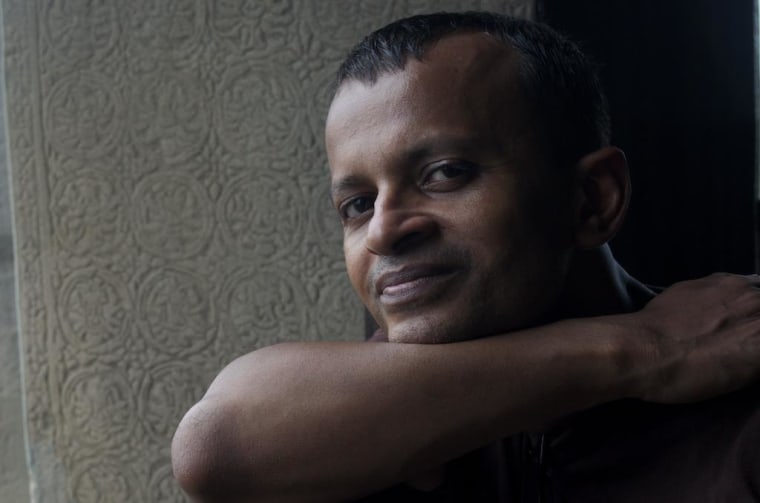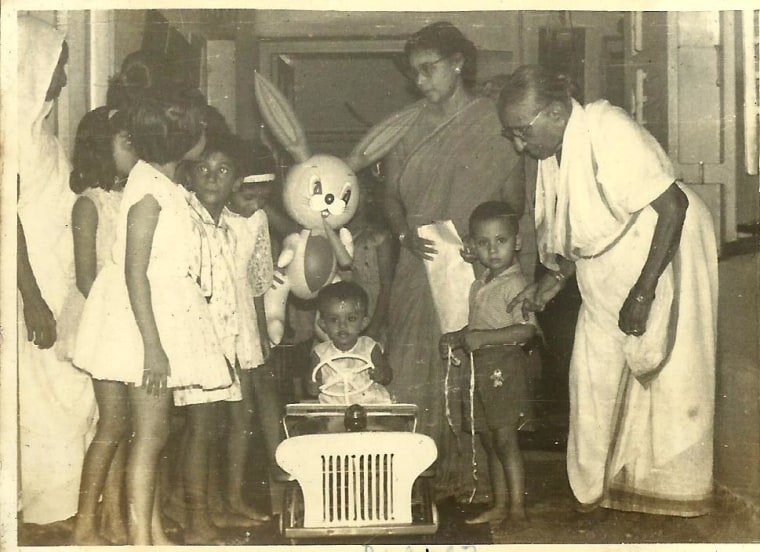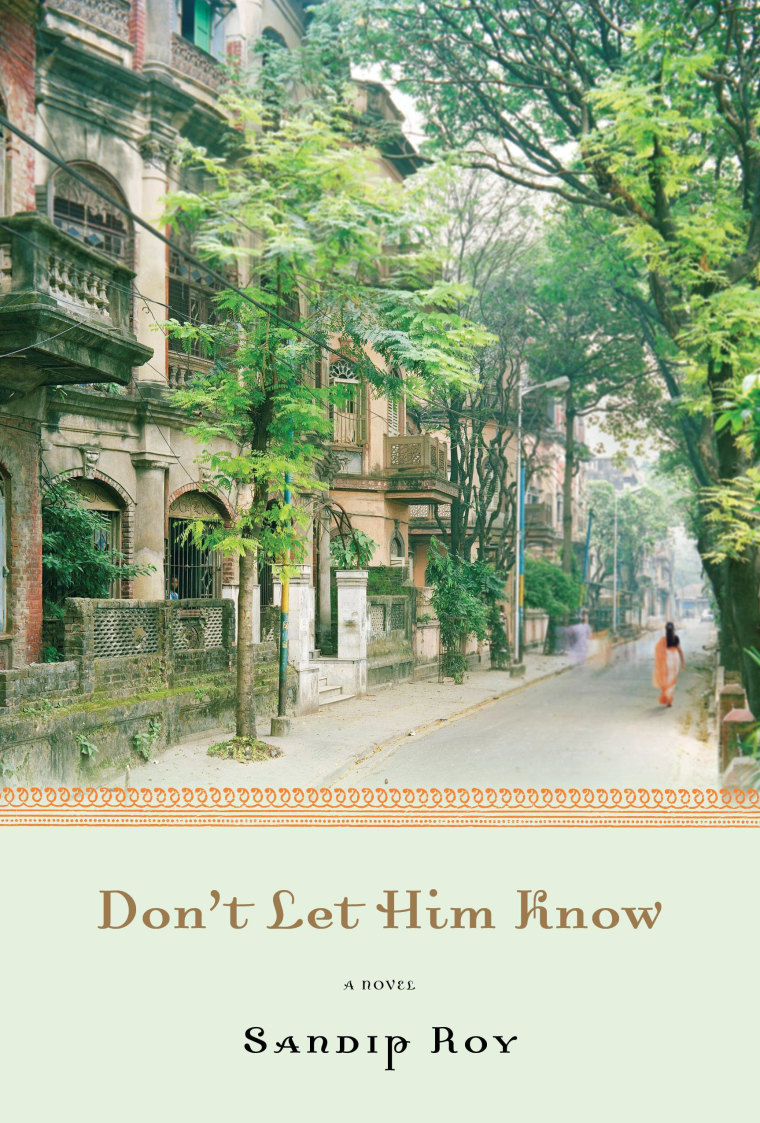Sandip Roy’s novel, “Don’t Let Him Know,” released this month in the US, UK, and India, and launching at the Jaipur Literature Festival, has already been described as possibly the biggest debut novel of the new year. Taking place across continents, generations, and sexualities, Roy’s novel marks a new take on the modern Indian-American family when love must stay secret.
“Moving from adolescent rooftop games to adult encounters in gay bars,” writes Bloomsbury Publishing, “From hair salons in Calcutta to McDonald's drive-thrus in California, ‘Don't Let Him Know’ is an unforgettable story about family, the struggle between having what we want and doing what we feel we must – and the sacrifices we make for those we love."
Although this is Roy’s first novel, his writing is well known in both the US and India. He is Senior Editor at Firstpost.com, a longtime commentator on National Public Radio's Morning Edition, an editor with New America Media, and a blogger for Huffington Post.
NBC News caught up with the Kolkata-based writer to discuss his new book.

Your novel, “Don’t Let Him Know,” has already been described as one to watch in 2015. Please tell us a little about the book.
Remember that famous Anna Karenina quote? All happy families are alike, each unhappy family is unhappy in its own way. Well, I feel that actually all happy families are not alike or even as happy as they appear in those family photos or their Facebook status updates. I wanted to tell a story of a perfectly happy family and its secrets that travel across generations. Some secrets tear families apart. Some keep it together. I wanted to tell the story of the burden of being good, the good son, the good wife, the good father, which I think Asians know a thing or two about. I wanted to explore the difference between being happy and being contented. ‘Don't Let Him Know’ begins with a young Indian American in California finding an old letter which he thinks reveals a secret he does not know about his mother. But as we discover, even secrets carry secrets within them. It's also a book about the resiliency of family and human beings. We think the world falls apart when we make a catastrophic discovery but somehow we do pick up the pieces and make for ourselves a life which if not happy, is happy enough. And sometimes that's good enough.
The structure of your novel is a series of interwoven short stories and character portraits. How did you pull them all together?
I like to think of the book as a novel in stories where each chapter is standalone and complete in itself but read together they fit together to give us a slightly different perspective of the characters. Each chapter informs the others even as it tells its own story. I actually had written some of these as stories in different forms until a perceptive friend pointed out, that whether I was writing in first person or third, I was really writing about the same set of people but at different points in their life. That's when i laid them out like a jigsaw puzzle and they started fitting in together and I had characters I could follow from chapter to chapter.

You have lived and worked all over the world —the Midwest, San Francisco, and now Kolkata. How have all those locations played into your stories and your Indian-American experience?
One must steal from what one knows. And that's probably even more true for a first-time author. While the novel is entirely fiction the locations are not. People are always anxious to detect autobiographical elements in works of fiction and I confess I do the same with writers I interview as a journalist. But in this book while I borrow tics, turns of phrases, even incidents from my lives and lives of people around me, the characters are completely fictional. Avinash in the book comes to Carbondale, Illinois like I did but he is not me. Amit in the book works as a software engineer in Silicon Valley but he is not me either. The great-grandmother in the book has a cast-iron stomach and wants to eat jackfruit and deep-fried goodies at the age of ninety-plus just like my own great-grandmother did but she's not my great-grandmother. However it was a pleasure to borrow from little things I remembered about my great-grandmother to flesh out this character because it helped me remember her again after a long long time. That made me smile.
Are attitudes toward LGBT issues in India and among Indian Americans changing?
Much has changed in the last couple of decades. My book tracks a sliver of that change. In the beginning we can see a man whose struggles with sexuality happen almost in a vacuum with no resources. Later on in the book we see a glimpse of the internet and bustling gay parties. But it's not a definitive portrait of that change by any means. A colonial era anti-sodomy law was overturned a few years ago by the court, reinstated by two judges on the Supreme Court and that decision caused so much outrage it's up for judicial review again. More than the twists and turns of law, what it shows is the job media has played in actually making LGBT issues much more part of mainstream discourse. I don't think a single English language paper actually supported the anti-sodomy law. All thought it was something that should go. As I write this a city in India has elected a transgender woman as its mayor. So whatever happens with the law I think the issue itself is out of the closet and no one can pretend it's a "foreign" import. In fact, it's the British era colonial law that is the foreign import.
-Interview was edited for clarity and length.
